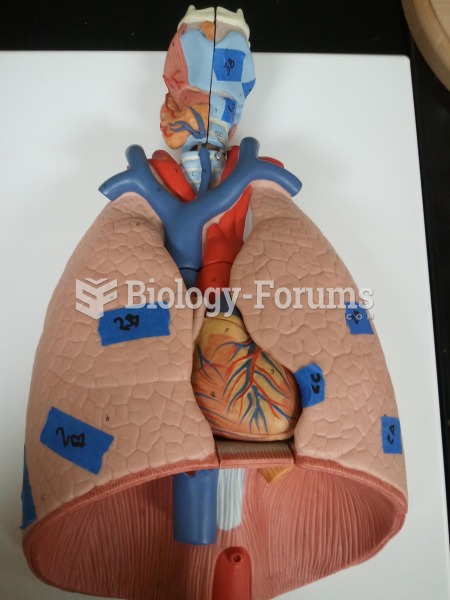|
|
|
Drug abusers experience the following scenario: The pleasure given by their drug (or drugs) of choice is so strong that it is difficult to eradicate even after years of staying away from the substances involved. Certain triggers may cause a drug abuser to relapse. Research shows that long-term drug abuse results in significant changes in brain function that persist long after an individual stops using drugs. It is most important to realize that the same is true of not just illegal substances but alcohol and tobacco as well.
Essential fatty acids have been shown to be effective against ulcers, asthma, dental cavities, and skin disorders such as acne.
More than 4.4billion prescriptions were dispensed within the United States in 2016.
The Romans did not use numerals to indicate fractions but instead used words to indicate parts of a whole.
More than 150,000 Americans killed by cardiovascular disease are younger than the age of 65 years.







